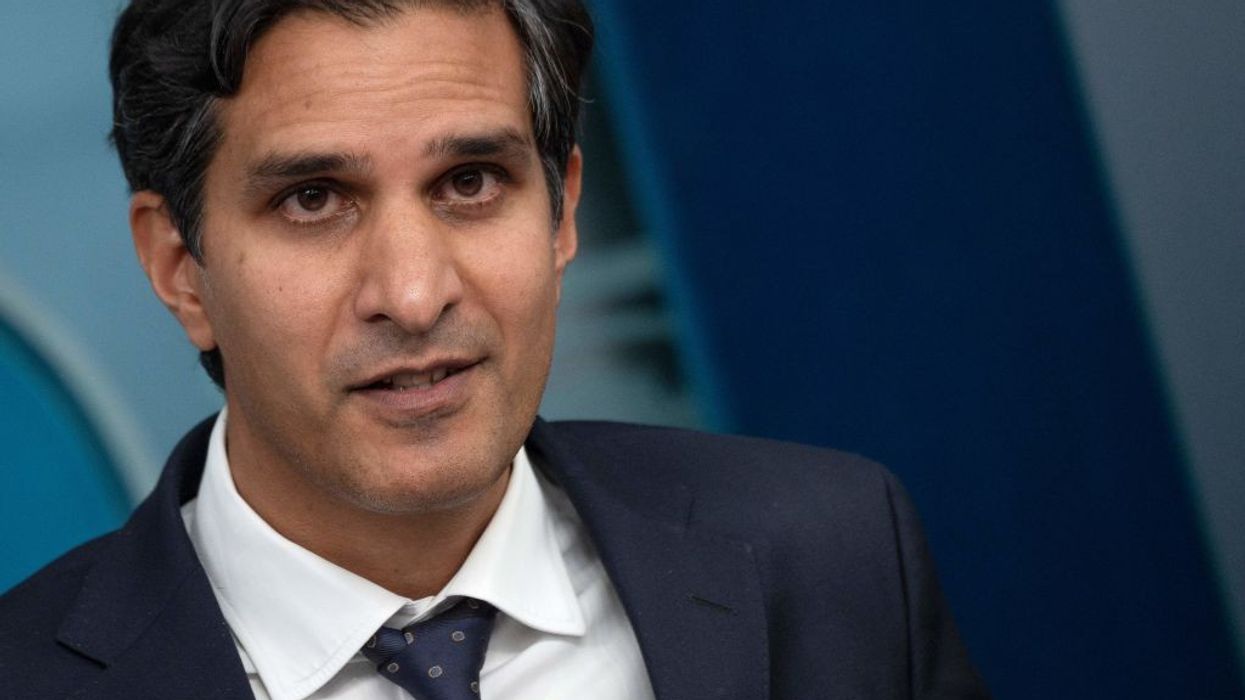AN Indian American economic advisor is playing a crucial role to impose punitive sanctions on Russia over its actions against Ukraine.
Daleep Singh, deputy national security advisor for international economics and deputy director of the national economic council, made his second appearance in the White House press room in a short span.
“Russia’s long previewed invasion of Ukraine has begun and so too has our response. The president (Joe Biden) responded swiftly and in lockstep with allies and partners. The speed and coordination were historic. It took weeks and months to mount a decisive response,” Singh told reporters in his opening remarks.
Singh said that after consultations overnight with Germany, Russia’s Nord Stream 2 natural gas pipeline will not become operational.
That is an $11 billion investment in a prized gas pipeline controlled by Russia that will now go to waste, and it sacrifices what would have been a cash cow for Russia’s coffers, he said.
Singh added: "We’ve demonstrated the potency of our financial sanctions and make no mistake, this is only the sharp edge of the pain we can inflict. In lockstep with our allies, we’re fully blocked from the global financial system, the fifth largest Russian financial institution, VEB, is a glorified piggy bank for the Kremlin that holds more than $50bn in assets.
"We’re also fully blocking Promsvyazbank, this is a bank that holds $35bn in assets that finances the activities of the Russian military."
According to Singh, a full block means these banks can no longer make any transactions with the US nor with Europe as Europe matched US actions, and their assets in America’s respective financial systems will be frozen.
Russian President Vladimir Putin this week signed decrees to recognise Ukraine’s regions of ‘Donetsk and Luhansk People’s Republics’ as ‘independent’. He also ordered Russian troops into eastern Ukraine in what the Kremlin called a “peacekeeping” mission in the Moscow-backed regions.
“Let me be totally clear, no Russian financial institution is safe if the invasion proceeds, we are ready to press a button to take action on the two largest Russian financial institutions, which collectively hold almost $750bn in assets for more than half of the total in the Russian banking system,” Singh asserted.
“Together with our allies, we’ve also cut off the Russian government, the Russian Central Bank and Russian Sovereign Wealth Funds from new financing from the US and Europe. The Kremlin can no longer raise money from the US or Europe and its new debt can no longer trade on the US, or European financial markets."
Singh added that the US has fully sanctioned a group of Russian elites and their family members. Other Russian elites and their family members are now on notice that additional actions could be taken on them as well, he said.
“I also want to take a minute to address a key part of the president’s speech on energy markets. We were deliberate to direct the pain of our sanctions towards the Russian economy, not ours. None of our measures are designed to disrupt the flow of energy to global markets and we are now executing a plan in coordination with major oil producers, and major oil consumers to secure the stability of global energy supplies,” the Indian American advisor said.
Singh said this was the beginning of an invasion and this was the beginning of the American response.
“The actions were only the first tranche. If Putin escalates further, we will escalate further using financial sanctions and export controls which we have yet to unveil, but which are fully prepared to implement with allies,” he added.





